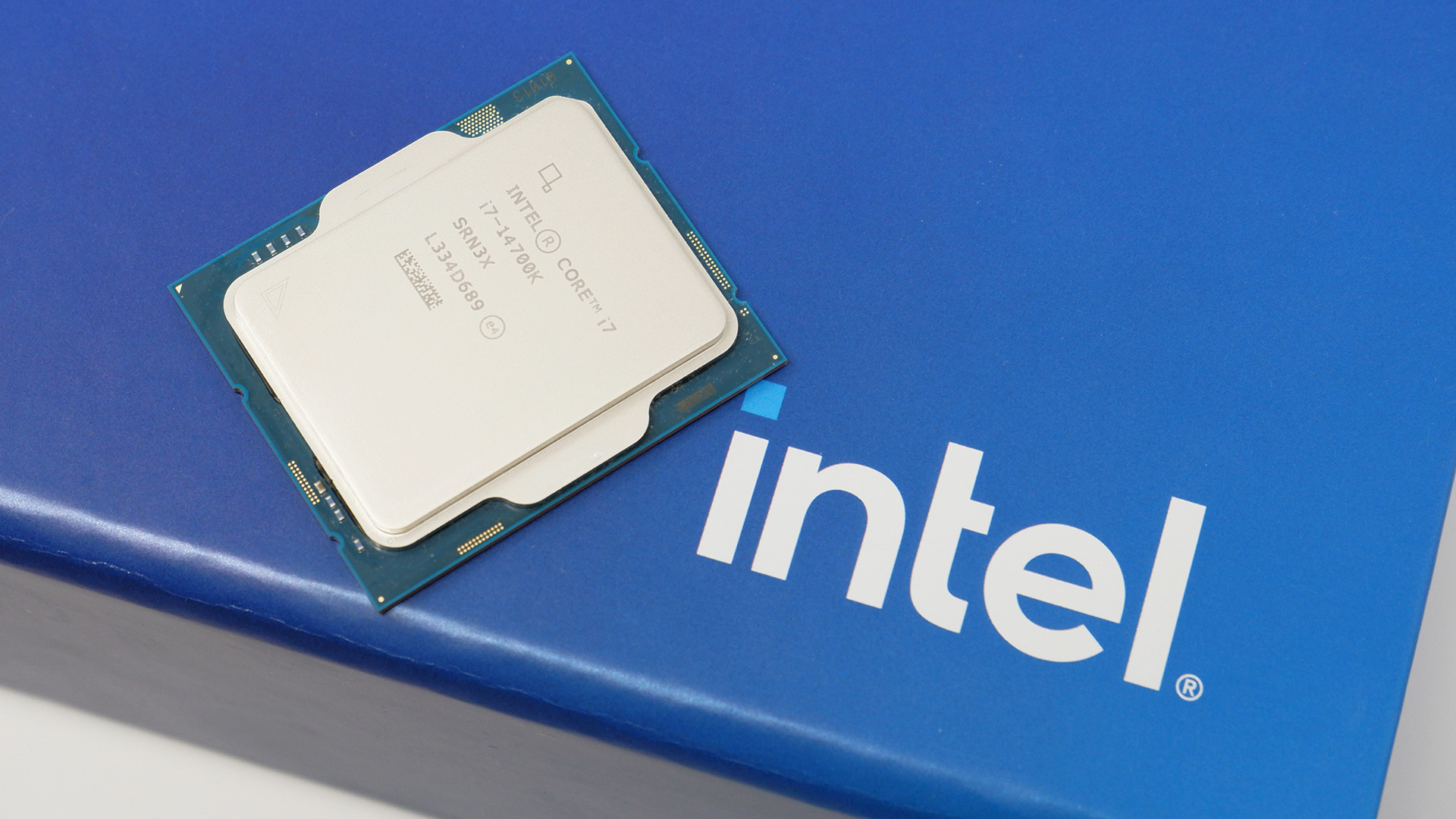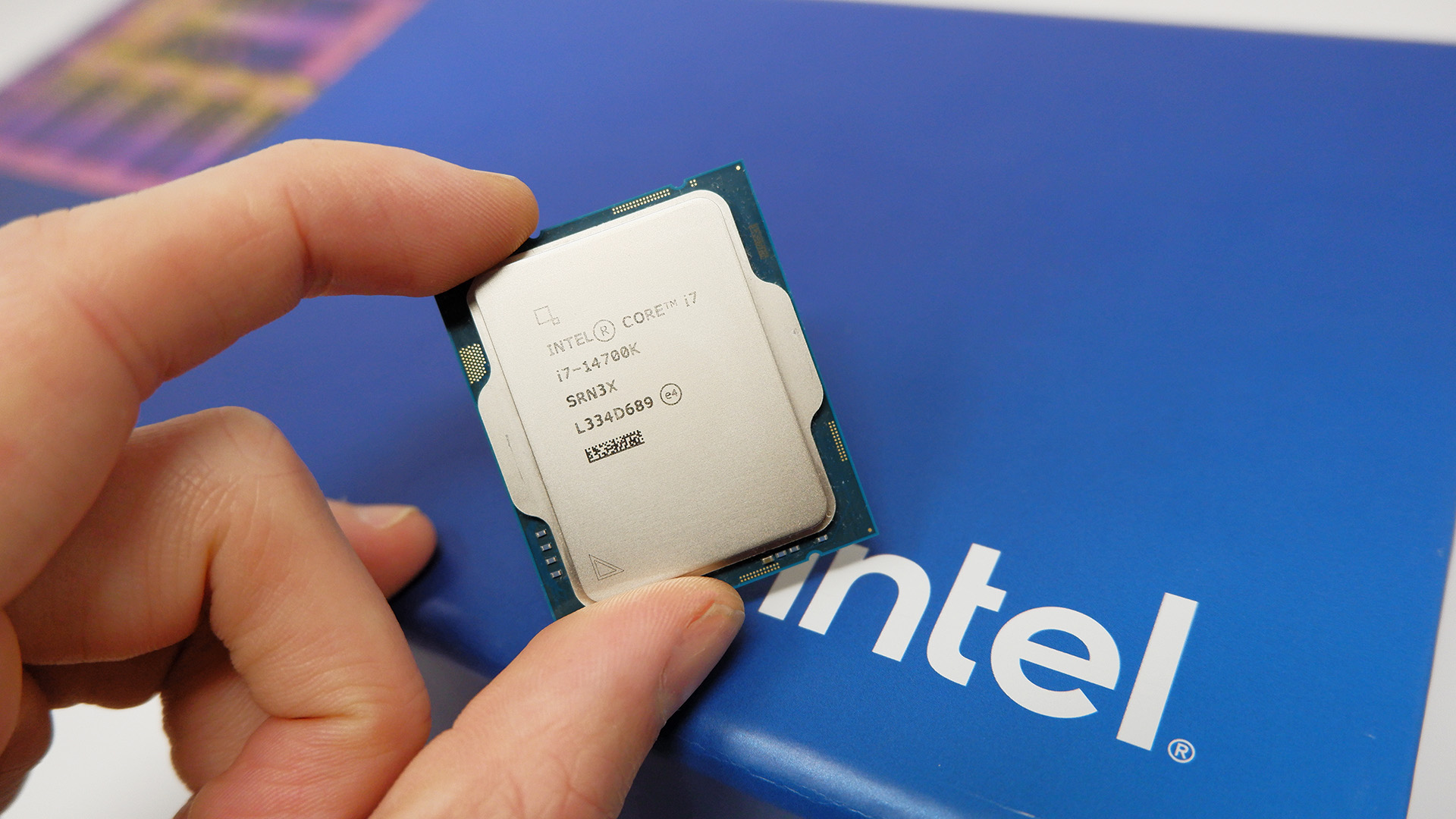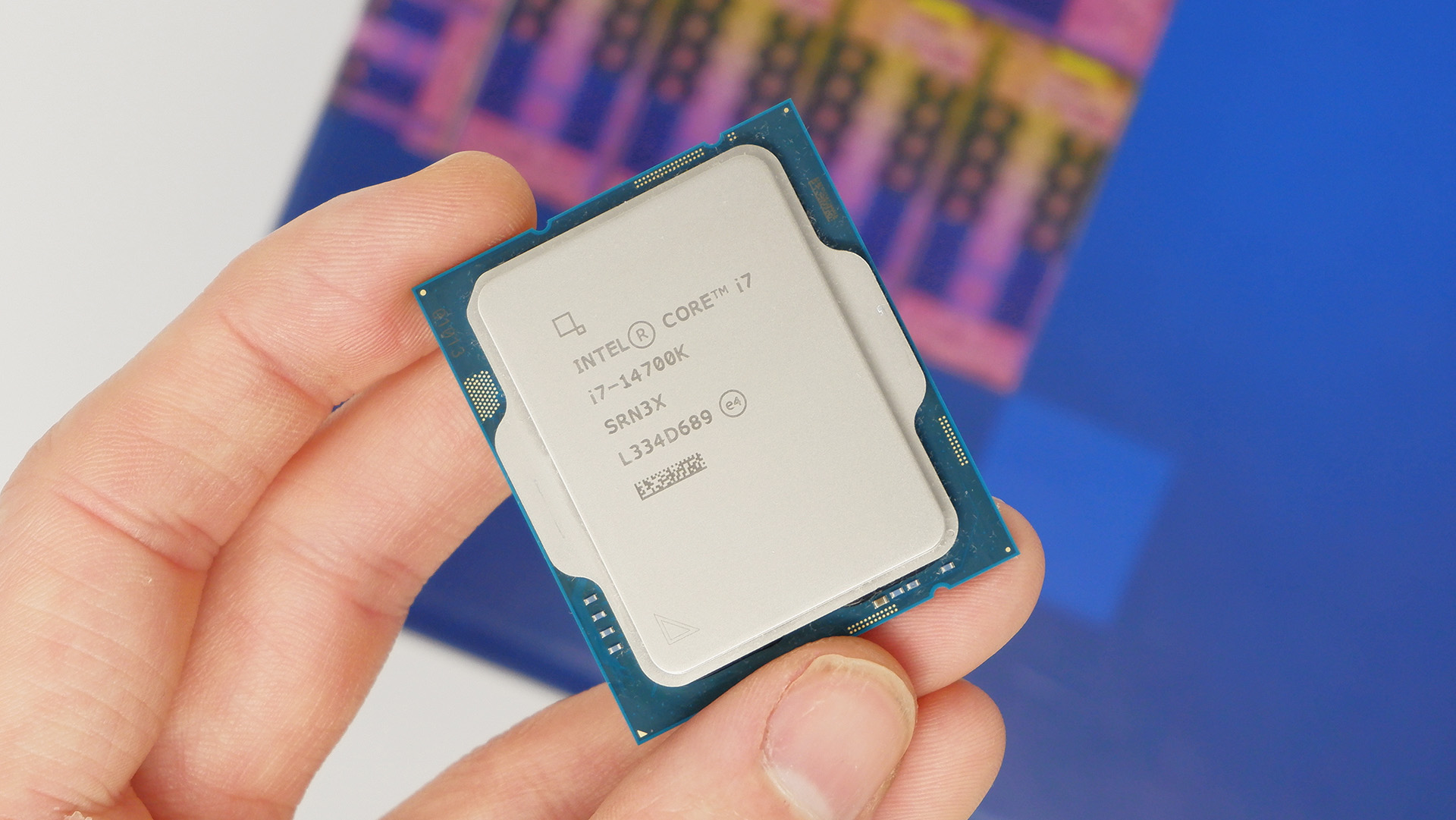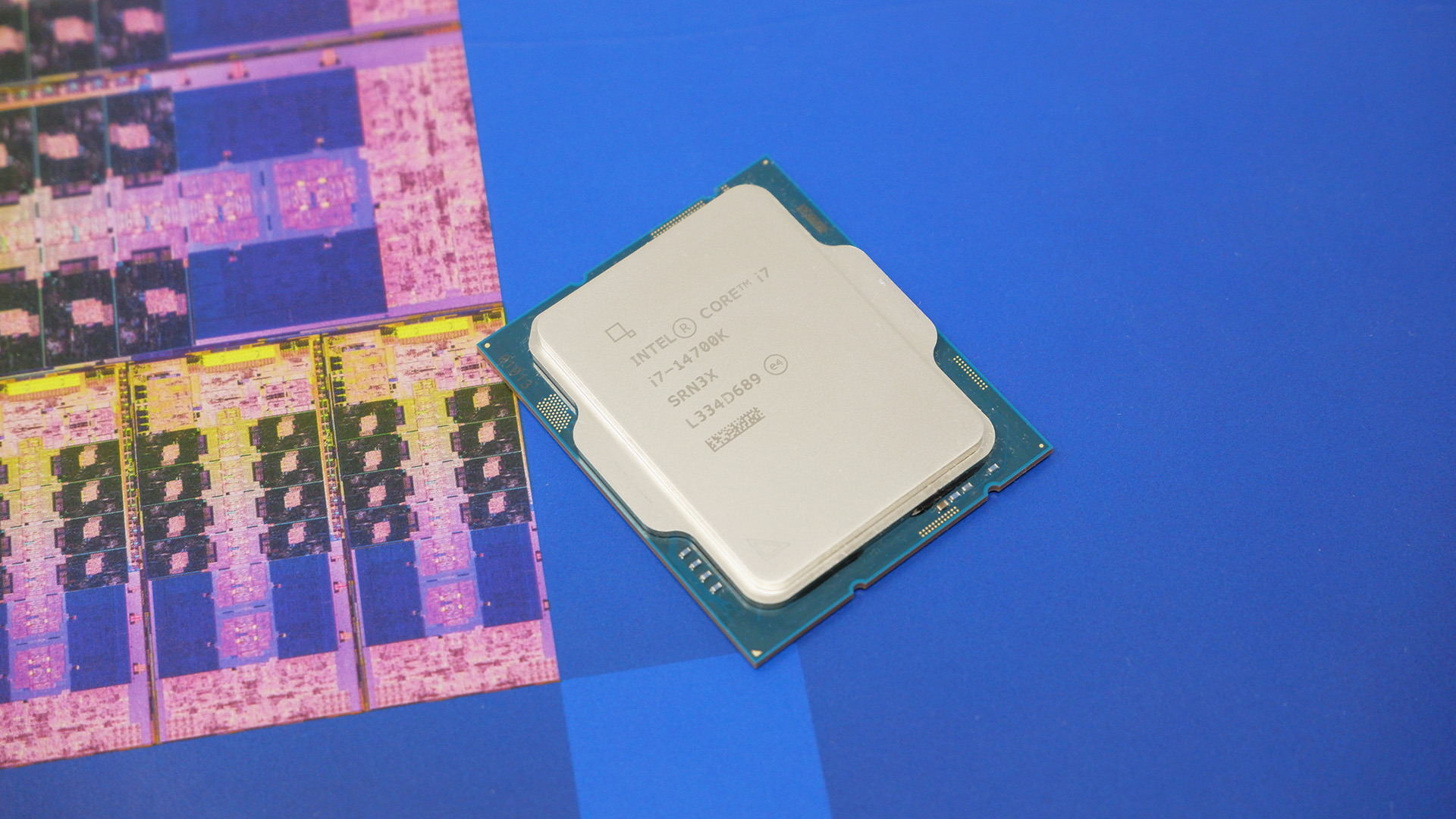Our Verdict
The Intel Core i7 14700K delivers high frame rates in games and doesn't let up in terms of multithreaded performance, either. While it runs a lot hotter than AMD's alternative, you can make a strong case for picking this processor up for your next PC build.
For
- Great for gaming
- Multithreaded champ
- A genuine step-up over 13700K
Against
- Hot
- High power draw
PC Gamer's got your back
The Intel Core i7 14700K brings something genuinely new to the table. It offers four more E-cores than the Core i7 13700K, and it's a touch faster, for a couple dollars more. With tangible benefits and near-enough price parity, it's arguably the only 14th Gen processor worth seeking out instead of the 13th Gen for your next PC build.
The 14700K comes with eight Performance-cores (P-cores) and 12 Efficient-cores (E-cores), bundled together for around $418 today. That's roughly on the mark for Intel's recommended customer pricing but more importantly only a few dollars more than a Core i7 13700K at $415, effectively killing the last-gen chip cold. While the architecture remains the same between the two—both utilise the Raptor Lake hybrid architecture—the 14700K comes with four more E-cores and 100–200MHz higher clocks on both E-cores and P-cores under Boost.
The slight gain in clock speed will only amount to a minor boost in games, as I've seen to be the case with the rest of the 14th Gen K-series processors. However, those extra E-cores do amount to a tangible benefit in applications that prefer a little more horsepower, and you are clearly better off for having the extra silicon under the hood.
It's the faster, low-latency P-cores that take the brunt of the gaming workload, and they're most important when chasing frames. Yet those extra E-cores can help out with gaming—in some instances directly via the game engine or most likely by offloading background threads or other tasks to free up the P-cores. There's a feature included with the 14700K/KF and 14900K/KF called Intel Application Optimization, or APO for short, that has been shown to improve utilisation of E-cores, too. However, it's extremely limited in scope and not the killer feature I'd like it to be.

Cores (P+E): 8+12
Threads: 28
L3 Cache (Smart Cache): 33MB
L2 Cache: 28MB
Unlocked: Yes
Max PCIe lanes: 20
Graphics: UHD Graphics 770
Memory support (up to): DDR5 5600MT/s, DDR4 3200MT/s
Processor Base Power (W): 125
Maximum Turbo Power (W): 253
Recommended customer price: $409 (retail price today: $418)
Nevertheless, the 14700K comes within touching distance of the pricier Core i9 14900K in the majority of the gaming benchmarks I've run. In Total War: Three Kingdoms, Shadow of the Tomb Raider, and Metro: Exodus only a single frame separates the two. In F1 2021, two frames. The largest delta was nine frames in Far Cry 6, but I'm honestly fine with that sort of difference if it means saving quite a lot of cash—at time of writing, you'd be saving yourself $158.
And that's a lot of money to pay for four more E-cores (remember: these E-cores don't have Hyper-Threading and only count for one thread) and some slightly higher clocks. It's maybe an odd way to think about it, but you could argue Intel's happy to hand you that same sort of bump free-of-charge with the 14700K. Rather, if you're planning to use your PC for more heavy-duty processing applications outside of gaming, the 14700K is still a suitable stand-in for the 14900K.
The cheaper chip is seriously impressive in tests of its multithreading muster including scoring major points across Cinebench R23, Blender and X264 benchmarks. You do need to care about multithreaded performance to go for this Core i7, too, as the Core i5 14600K performs incredibly similarly in gaming benchmarks.
Though if you do feel strongly for multithreaded performance, this is where Intel's chip shines versus AMD's excellent 3D V-Cache competition: the Ryzen 7 7800X3D can't really get close in many synthetic multithreaded benchmarks.
The 14700K frequently trades blows with the Ryzen 7 7800X3D in gaming benchmarks, too. The benefit with AMD's chip is its high efficiency and low package power draw, neither of which are the 14th Gen's strong suit. You can also pick one of the red team's chips up for a small amount less than a 14700K, but otherwise there's a really good case to be made for the 14700K for the multithreaded performance.

The 14700K really is not the coolest nor most efficient chip. With peak wattage of 253W and an average of over 200W, it's pretty much a match for the 14900K it so closely resembles. It also runs up to 96°C under load, which is toasty despite our test bench's chunky all-in-one 360mm cooler. The 7800X3D's 80°C max temperature feels icy by comparison.

It makes for one tough decision: do you favour multithreaded performance or efficient operation? That can come down to a few key factors, but with the two often giving as good as they get in gaming performance, the lower power consumption of the AMD chip does begin to sway me to the red team's offering.
That said, Intel is offering a lot more chip for your money with the 14700K over previous generations. If you're chasing multithreaded power and don't want to sacrifice leading gaming performance, you won't find a rival for the same money.
The Intel Core i7 14700K delivers high frame rates in games and doesn't let up in terms of multithreaded performance, either. While it runs a lot hotter than AMD's alternative, you can make a strong case for picking this processor up for your next PC build.

Jacob earned his first byline writing for his own tech blog. From there, he graduated to professionally breaking things as hardware writer at PCGamesN, and would go on to run the team as hardware editor. He joined PC Gamer's top staff as senior hardware editor before becoming managing editor of the hardware team, and you'll now find him reporting on the latest developments in the technology and gaming industries and testing the newest PC components.


